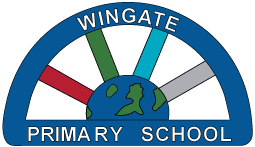More details on how we adapt information, our environment and curriculum can be found in the Accessibility Plan which you can find in the School Policies section of our website.
Children learn and develop in different ways and may need extra help and support at various points throughout their time at school. Some children, at some time in their school life might have additional or different needs and it may be that they will be on our SEN register for a short period or a long period of time. However, children’s needs will be frequently reassessed regularly in order to ensure that the provision is suitable and supports every child’s development.
Our SENCO, working alongside class teachers, oversees all SEN provision, different approaches to teaching and monitors progress of any child requiring additional support across the school. The class teacher will oversee, plan and work with each child with SEND in their class to ensure that progress in every area is made. This is Quality First Teaching and is where the work is highly differentiated and suits the needs of all children, it comes in the form of a lesson rather than an intervention programme. Alongside Quality First Teaching, that your child will receive in lessons, there may be a Teaching Assistant (TA) working with your child, either individually or as part of a group, if this is seen as necessary by the class teacher. On rare occasions children may be taken out of the classroom for these sessions however they will be given the opportunity to access similar activities as the rest of the children in their class. The regularity of these sessions will be explained to parents/carers when the support starts.
To successfully match pupil ability to the curriculum and learning environment there are some actions and adaptations we may take to achieve this:
- Ensure that all pupils have access to the school curriculum and all school activities in order to promote highest levels of achievement.
- Help all pupils achieve to the best of their ability, regardless of any difficulty or disability they may have.
- Ensure that all staff are aware of and sensitive to the needs of all pupils, teaching pupils in a way that is more appropriate to their needs.
- Support pupils to gain in confidence and improve their self-esteem.
- Work in partnership with parents/carers, pupils and relevant external agencies in order to provide for children’s special educational needs and disabilities.
- Identify at the earliest opportunity, all children that need special consideration to support their needs (whether these are educational, social, physical or emotional)
- Make suitable provision for children with SEN to fully develop their abilities, interests and aptitudes and gain maximum access to the curriculum.
- Promote self-worth and enthusiasm by encouraging independence at all age and ability levels.
- Regularly review the policy and practice in order to achieve best practice.
The provision for pupils with SEN across the four Broad Areas Of Need may include some of the following interventions;
Communication and interaction – Speech and language programmes such as Colour Semantics, Listening Skills and Lego Therapy. We also work with the EWEL (Emotional Wellbeing Team).
Cognition and learning – additional Mathematics materials are used in lessons and as interventions. Spelling and guided reading and writing are used in lessons and as interventions. We also work with the County Durham Cognition and Learning Team.
Social, Emotional and Health Difficulties – A range of provision is used to help pupils with their social skills and helps pupils to understand various emotions that they and others might feel. Programmes in our school include Listening Matters, Lego Therapy, CBT and Nurture Groups. We also have our own School Counsellors who support children in school.
Sensory and/or Physical Difficulties – For Gross Motor Skills and Fine Motor Skills interventions we use advice from the Occupational Therapy Service and follow their suggestions.
Children who are receiving additional support and intervention programmes have a Support Plan. Parents/Carers are invited into school to review and discuss support and progress with staff every term. The children also meet with their teacher and discuss their support plan and are asked what they feel helps them to make progress.
More details on how we adapt information, our environment and curriculum can be found in the Accessibility Plan and our Accessibility Action Plan which can be found in the school policies section of our website.
How are the Governors involved and what is their responsibility?
Governors are kept up to date on the progress of SEN children. Individual children are not named in this instance and confidentiality is maintained at all times. One of the Governors is responsible for SEN and they liaise with the Head Teacher and SENCO, they also discuss the funding arrangements and resources for SEND children. The Governors agree priorities for spending within the SEN budget with the overall aim that all children receive the support they need in order to make progress.
